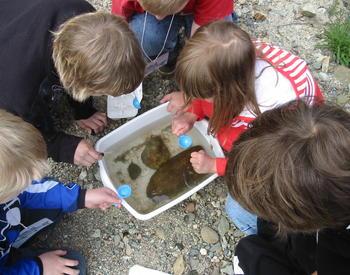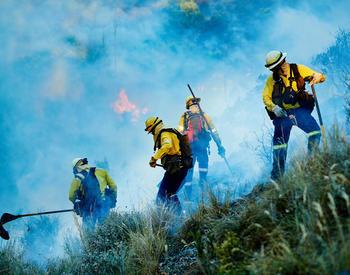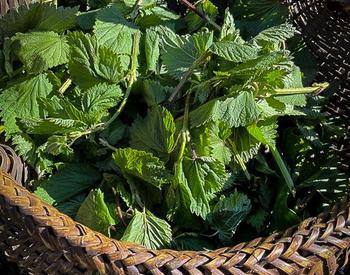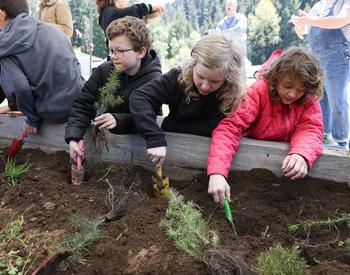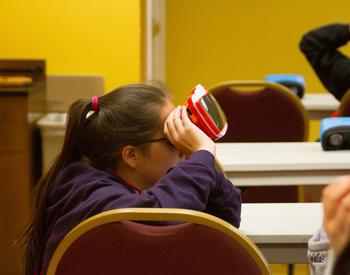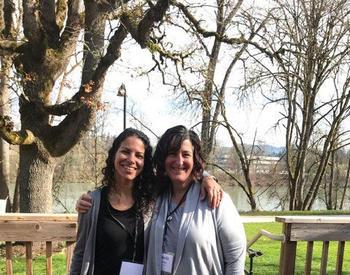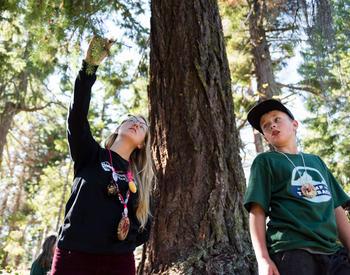CORVALLIS, Ore. – The Oregon State University Extension Outdoor School Program has received the 2024 Western Extension Directors Association Award of Excellence for Diversity, Equity, and Inclusion for work in making outdoor schools more equitable and accessible.
The Extension Outdoor School program has been deeply committed to equity, diversity, accessibility and inclusion since the program launched in 2017, and these values are fundamental to the program and its work, said Spirit Brooks, Outdoor School director.
“These types of awards are important to highlight the work we have done in the past but also inspire us to pursue this work in the future. We are a strong team with a strong mission and a commitment to inclusion.”
The award of excellence was developed to recognize Extension professionals in the Western Region of the United States who have demonstrated a commitment to serving diverse and minoritized populations.
As entrusted by voters, directed by Oregon law, and with input from an advisory committee, OSU Extension provides fiscal, programmatic and administrative responsibility for the program, which currently serves Oregon fifth and sixth grade students. Extension works in collaboration with school districts, partners and communities to support and grow the statewide Outdoor School program, building on a legacy that began in 1966.
More than 92,000 fifth and sixth grade students have participated since 2017.
Outdoor School is a transformative, immersive experience that instills environmental literacy and positive learning behaviors in students. However, students from marginalized communities traditionally faced barriers to participation in outdoor school. To address these inequities, the Outdoor School team worked to provide inclusive curriculum support and professional development for equity, diversity, access and inclusion.
In 2020, the program made 13 grants that focused on accessibility-based site improvements and enhancements to outdoor school facilities. Additionally, the program approved 11 other grants to outdoor school providers to increase and expand the equity, accessibility, and inclusivity of the provider’s programming. The program's total grant contribution for these improvements totaled $5.174 million.
In one case, at Camp Fire Wilani, an outdoor school provider in Lane County, a grant was made to make a facility developed in the 1960s more accessible to students using wheelchairs. The renovations to the site increased accessibility of outdoor school to people of all mobility.
The Outdoor School team also developed program self-evaluation tools to promote equity, diversity, accessibility and inclusion among outdoor school programs. Hundreds of provider leaders and educators have been trained to use these tools, which have led to improvements in programming and participation by historically underrepresented students.
Another major aspect of Outdoor School’s initiatives is to provide professional development to educators that deliver outdoor school to students. The Outdoor School program has developed in-person workshops and self-paced courses that focus on equity and inclusion, and infusing Indigenous Studies concepts into outdoor education.
“We are rethinking traditional Outdoor School and helping programs understand outdoor education through an indigenous lens,” Brooks said.
The land-based education workshop includes information on how to be culturally responsive and respectful of Indigenous identities in their outdoor schools.
To better tell the whole story of the history of our native people in Oregon, Outdoor School developed "Critical Orientations: Indigenous Studies and Outdoor Education,” a self-paced, free online course has been completed by hundreds of people, within and beyond the outdoor school community.
"The Outdoor School program’s mission is rooted in equity, diversity, access and inclusion and we never feel like the work is done," Brooks said.
